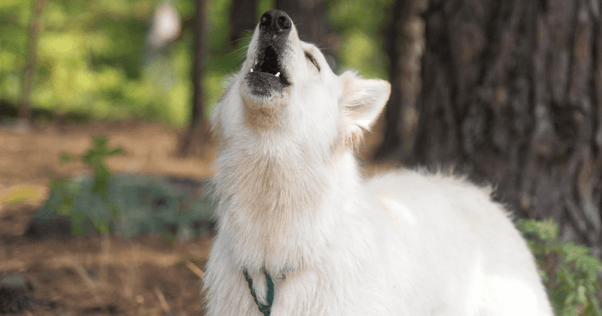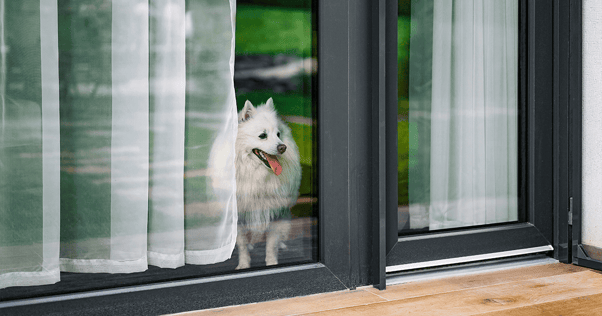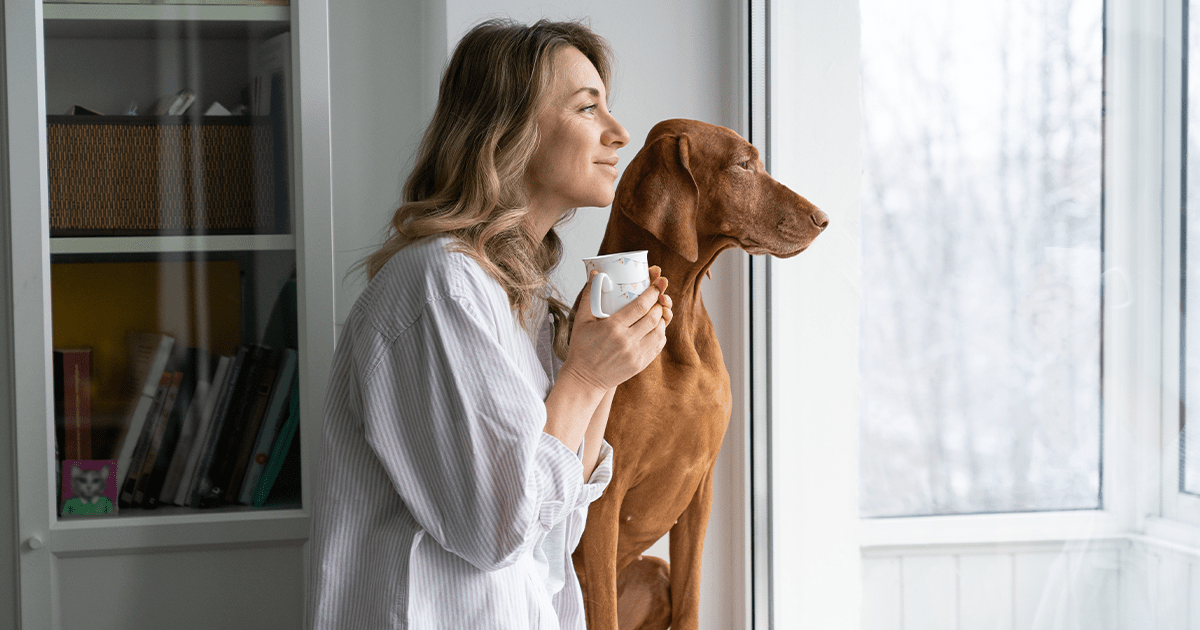Did you know, dogs have a number of effective ways of communicating – which involve most of their senses. Howling is one of them!
Howling is a form of communication that dogs naturally use – some breeds more so than others. Dachshunds, Foxhounds, Huskies, Beagles and Alaskan Malamutes all like their voices to be heard!
You may even find that if one dog starts to howl, another will join in. That’s because dogs are excellent communicators. So in addition to howling, you may have seen (or heard!) your dog communicate through:
- Smelling and sniffing. From playing games to hunting, dogs’ noses are an essential part of their daily life.
- Hearing and listening. A dog’s hearing is about 4 times more sensitive than a humans and, for some, unusual noises or sounds can make them nervous.
- Pheromones. This is important for dog to dog communication, but when adopted by pet parents, using an ADAPTIL Calm Diffuser will replicate appeasing pheromone messages which are emitted by mother dogs and will help your pooch adapt to stressful situations.
- Vision. Did you know, dogs can only see detail up to 25 feet away?
- Barking. Dogs bark when they are calling out to other dogs, expressing emotion, being territorial or when trying to get their owner's attention.
- Whining. Dogs will typically whine when they're seeking attention, when they're excited, or when they're anxious.
- Yelping. This is intended to get your immediate attention and can sometimes mean they have sustained an unexpected injury, like a bee sting for example.
- Growling. Some dogs give a gentle growl as part of everyday play, but more often than not, a growl is a warning sign for you, or other dogs, to give them space.
- Body posture. It’s important that pet parents understand their dog’s body language so that you can help them cope with all day to day situations.
But what if your dog is howling a little too much – and does so when left alone? Let’s look at why they might choose to communicate in this way.

Why Do Dogs Howl When Left Alone?
There are lots of things that howling might be trying to convey. If your dog howls a lot, they may be trying to:
- Attract attention. Often used if a dog is feeling distressed or territorial or it may be that they are just trying to get your attention. Howling for attention seeking can be difficult to pinpoint, because it may sound a lot like howling from anxiety or pain. Be sure to rule out other problems before you assume your dog’s howling is related simply to them looking for attention.
- Communicate with other dogs, as they do in the wild. They howl to mark their presence or to communicate their position with the rest of their pack.
- Respond to high-pitched sounds. Some dogs howl if they hear a siren or a car alarm – or even when you play a specific tune.
- Show excitement. This might be combined with excited barking and doesn’t usually last very long. For example, they may bark, wiggle and howl when you return home – to show you just how happy they are!
- Communicate discomfort. Dogs may get scared, bored or frustrated when left on their own, and begin to howl.
Dogs are very social animals and can find being left on their own challenging. So, howling may be their way of calling you to come home!

Sometimes, a dog may howl for a little while after you have left, or they may continue for the entire duration. If they howl for a short period of time and then settle, they are probably just letting you know that they are not happy, but will accept the situation as they know you will be home soon.
If they are really not coping with being left alone, they may show other signs of stress that you’ll see on your return, such as chewing, soiling, pacing or drooling which could indicate they have separation anxiety.
It’s important that you help your dog adjust to being home alone with positive training, and it helps to give them plenty of exercise before you leave, to help them settle or sleep. To give them some companionship, you could try playing their favourite music while you’re away.
It is also just as important that you do not punish them for howling when you are not there. Instead, consider leaving them for shorter periods of time, or explore other options like a dog sitter, doggy daycare, dog walkers or asking friends or family members to visit. Seeking the advice of a professional behaviourist can also help you identify and support your dog with any excessive howling.
If you are unable to pinpoint the reason for your dog howling, or you think they may be sick or in pain, always get them checked out by a veterinarian.


